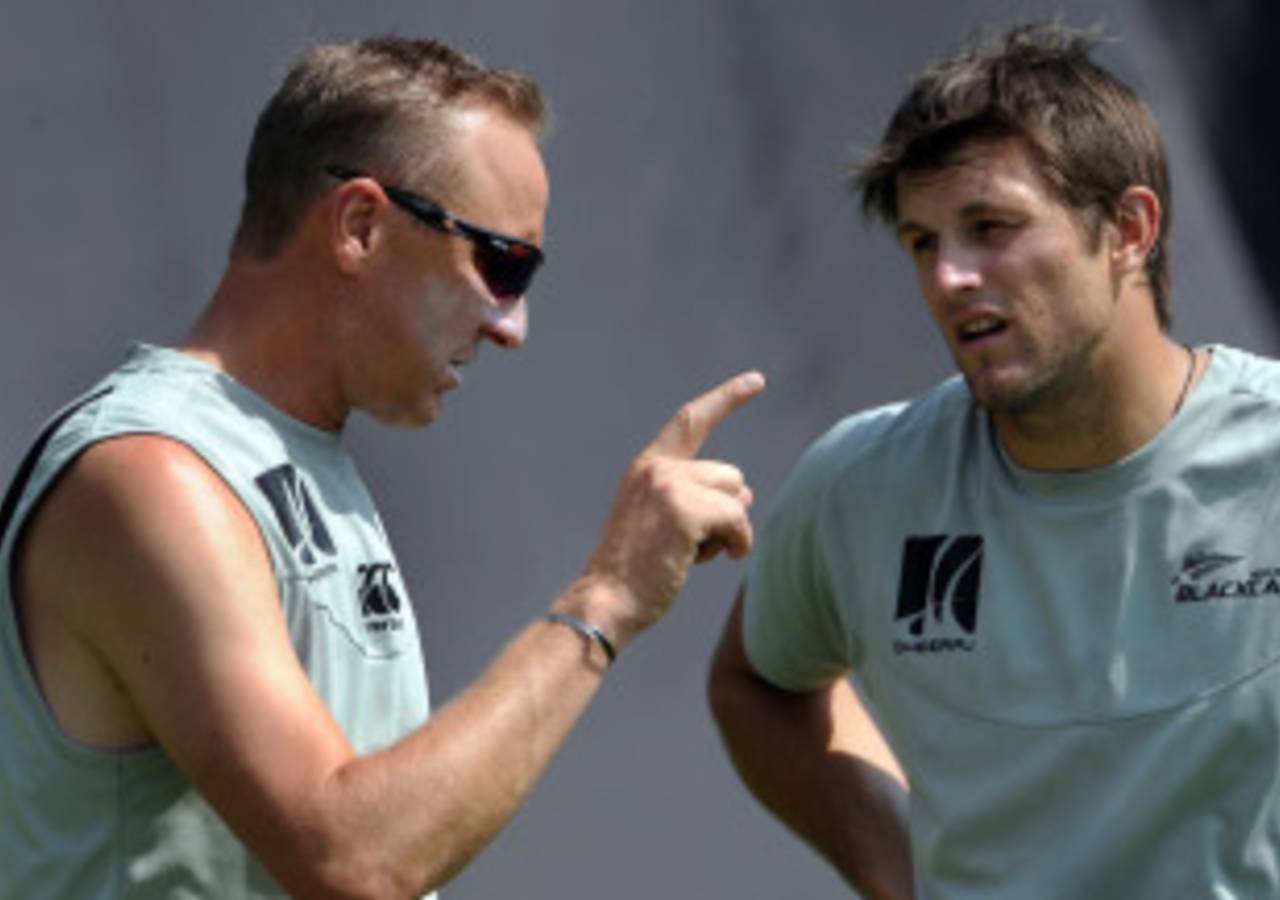In the other camp
Two South African journalists travelled on the diverted flight that went to Dhaka to fetch the New Zealand cricket team and carry them to Colombo
Firdose Moonda
25-Feb-2013

Allan Donald has brought an aggression to New Zealand's bowling department • AFP
Two South African journalists travelled on the diverted flight that went to Dhaka to fetch the New Zealand cricket team and carry them to Colombo. When they got on the flight, they found that the seating plan was non-existent since the plane had made an extra stop and seating for the few passengers from Dhaka was free. They chose a row of three seats, leaving one free for a countryman of theirs – Allan Donald.
The fast bowler walked on to the flight, spotted the familiar faces and soon found he couldn’t escape their familiar sound. “Howzit Allan,” they said. “Hi,” he replied. Hi?? Their faces dropped. He said hi. A few months in England, and now some time in New Zealand, does this to you, they eventually concluded. You have to say hi and not howzit. But they let it go, understanding that Donald is a professional, who puts his job first, and if his job is coaching another team that don’t say howzit, then so be it.
Donald is a passionate man; that people have known since the days of his fiery fast bowling, but South Africans were surprised, and even a little alarmed, to see him punching the air and high-fiving his New Zealand colleagues on Friday night. Donald, to many South African fans, will always be the man who dropped his bat and caused the run-out that saw South Africa exit the 1999 World Cup. That semi-final against Australia could well be the moment that started the choking phenomenon, and to see Donald celebrating a choke in that fashion led to much criticism.
“I’ve copped some stick back home from journos and the public,” Donald said to his two companions on the flight. “But the guys I respect will accept that when you do a job you want to do it properly.” Properly is an apt description of the way he has gone about his duties as New Zealand bowling coach. He has managed to turn an attack that boasts no out-and-out pace bowler and that traditionally relies on its ability to scrap into one that could defend 221 against a South African side that looked destined for victory.
Not all of it is Donald’s doing, of course. Some of the persistence and patience New Zealand showed during the quarter-final in Mirpur was down to what they call “Kiwi fight”, but the attitude of aggression is something new to them, something they credit Donald with bringing to the team. “It’s a different voice, it’s a little bit more aggressive,” Jacob Oram said. “Immediately when he came into the camp, we were standing there and thinking, this is Allan Donald, and as soon as he started speaking, the guys were listening.”
Donald has that sort of aura about him. When he talks, people listen. When he talked about travelling through Sri Lanka to the South Africans who were making their debut trip to the island, they listened intently. But he couldn’t stay long. As soon as a gap opened up in the seats where the team was sitting, he politely excused himself from the journalists’ company and went to sit with his new bunch.
There, he laughed alongside Brendon McCullum, who had perched himself on the armrest of Donald’s chair, and watched Nathan McCullum and Daryl Tuffey play cards and James Franklin read a book. That's what the New Zealand team that had just caused a major upset by knocking South Africa out of the World Cup were doing on their flight to the semis. There they were, doing the same kind of things a touring bunch of schoolboys may do, and they looked as carefree and happy as teenagers might. So did Donald.
Firdose Moonda is ESPNcricinfo's South Africa correspondent